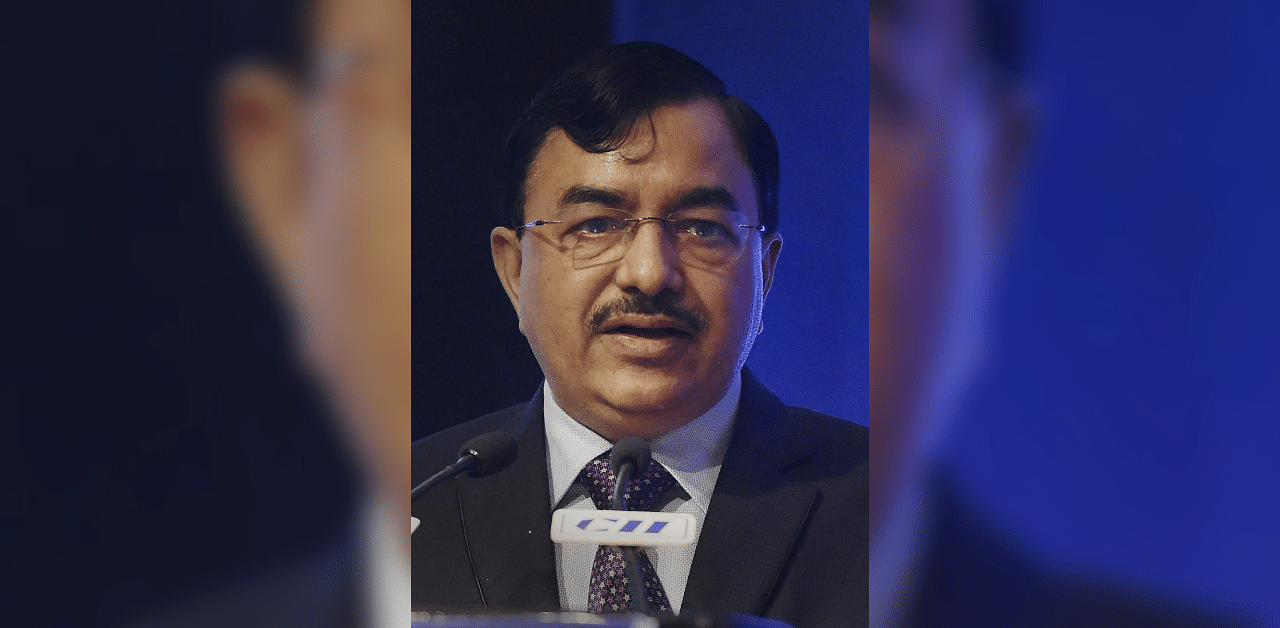
Sushil Chandra is likely to take over as the Chief Election Commissioner in April 2021, as President Ram Nath Kovind accepted the resignation of Ashok Lavasa, who would have succeeded Sunil Arora as the head of the poll-panel.
If Chandra takes over as the Chief Election Commissioner, he may lead the poll-panel in conducting state assembly elections in West Bengal, Assam, Kerala, Tamil Nadu and Puducherry in April-May 2021 and in Uttar Pradesh, Uttarakhand, Punjab, Manipur and Goa in February-March in 2022.
The elections in West Bengal and Uttar Pradesh are among the most important for the Bharatiya Janata Party (BJP), which leads the ruling coalition at the Centre. After winning 18 of the 42 Lok Sabha seats from West Bengal in 2019, the party is now preparing to pose a tough challenge to the ruling Trinamool Congress in the state assembly polls in 2021. The 2022 polls in Uttar Pradesh is also going to be important for the BJP, as it will come just two years ahead of the 2024 parliamentary polls.
Lavasa was senior to Chandra and was next-in-line to take over as the Chief Election Commissioner after the term of the incumbent, Sunil Arora, would end in April 2021. He, however, resigned to join the Asian Development Bank as a vice-president. The President accepted his resignation “with effect from August 31, 2020,” read a gazette notification issued by the Union Ministry of Law and Justice on Tuesday.
Lavasa had a run-in with Arora and Chandra over enforcing Model Code Conduct during Lok Sabha polls 2019. His disagreement with other two members of the EC on the issue of enforcement of the poll-code during the parliamentary polls last year had come to the public domain.
He had written a letter to the Chief Election Commissioner protesting against his dissenting minority views not being recorded in the decisions taken by the EC on notices or orders issued by it in the cases related to the alleged flouting of the poll-code, particularly on giving clean chits to Prime Minister Narendra Modi and the then president of the ruling Bharatiya Janata Party (BJP), Amit Shah, who later took over as Union Home Minister.
The BJP-led Government last month launched a probe against Lavasa, asking 11 public sector undertakings to verify if he had exercised “undue influence” during his tenure at the Ministry of Power from 2009 to 2013. The Income Tax department had also sent notices to his wife, sister and son.
Chandra, an Indian Revenue Service (IRS) officer of 1980 batch, was appointed as the Election Commissioner on February 15, 2019, after his superannuation as the chairman of the Central Board of Direct Taxes (CBDT). He was “at the forefront” of the Modi Government’s “fight against black money” and “spearheaded” action against “tax evasion in the wake of November 2016 demonetization”, according to his profile on the official website of the EC. He held “sensitive posts in Uttar Pradesh, Rajasthan, Gujarat, Maharashtra and Delhi” during his 38-year-long stint in the Indian Revenue Service.
Lavasa is the second Election Commissioner to leave the poll-panel before the end of his term. Nagender Singh had in 1973 resigned as Chief Election Commissioner before completing his term after being appointed as a judge of the International Court of Justice.
At the ADB, Lavasa will succeed Diwakar Gupta, who will on August 31 next complete a five-year-term as the vice-president for Private Sector Operations and Public-Private Partnerships. The bank has its headquarters in Manila
